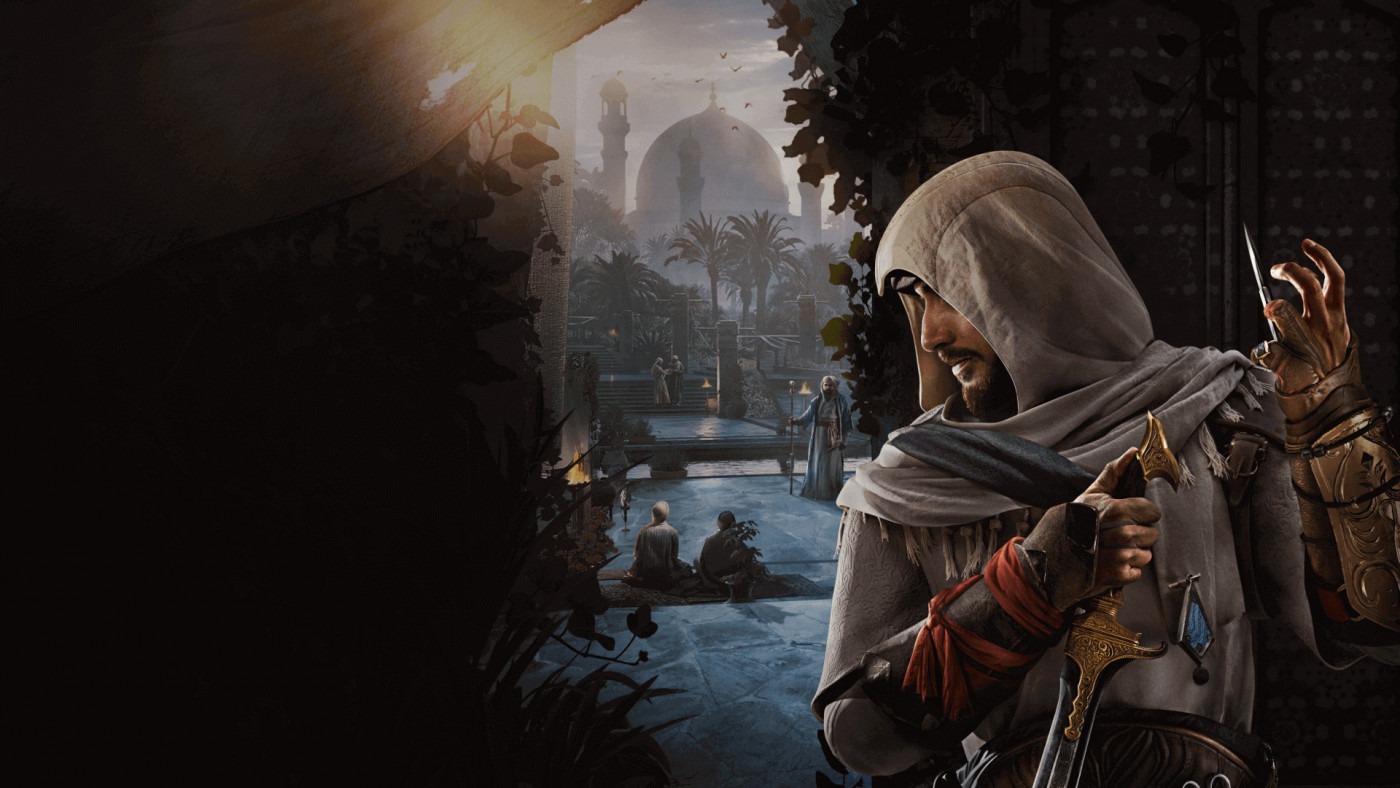Assassin’s Creed may be on its last legs, but Mirage proves the franchise has some fight left
Anyone who knows me – including the Games Team at The Boar – knows that I’m a die-hard Assassin’s Creed fan. Anyone who’s read The Boar for a long time will also know that I wrote a really critical review of Valhalla when it came out. In fact, I was so disillusioned with it that I didn’t even play any of the Downloadable Content, and the case is just lying untouched in my collection.
So, as you might imagine, I was pretty nervous about Assassin’s Creed: Mirage. When I watched the Showcase back in September 2022, the latest instalment was being framed as a return to the franchise’s roots – something which Ubisoft are keen to stress when the game launches by showing a montage celebrating the franchise’s 15-year anniversary. In other words, yet another reboot. The question now is, how did they do?
The latest instalment in the franchise sees us go back twenty years before Valhalla to Baghdad, Iraq during the Abbasid Caliphate. Ubisoft arguably took a big risk here, turning the antagonist of the last game, Basim ibn Is’haq, into its protagonist. However, the story was extremely well-written and flowed quite nicely, tracing Basim’s rise from master thief to Master Assassin – though I will say the ending was disruptive and didn’t quite stick the landing. Nevertheless, it definitely gives original AC vibes, going back to the Assassin Bureaus of the first game, but offering a new format. The quest screen has been revamped as the ‘Investigations’ panel, offering a mind-map-esque format that is more in line with the assassin tradition of gathering intel than a static quest list.
the ending just feels like a disservice to the beautiful storyline Mirage offers.
Another big change is the revamped pickpocket system. Rather than just being a simple button mechanic, it’s actually been turned into a minigame – and if you fail, then your target will alert the guards nearby, making the model far more realistic and enjoyable. It’s worth learning how to do this, because the notoriety system is back! Not only is it back, but it’s extremely nuanced and involves non-playable characters (NPCs) to an unprecedented level – citizens can call you out on the street and summon the guards as you’re just minding your own business.
There are also brand-new features – like the Favour Tokens. There are three – Power, Merchant, and Scholar – which can be redeemed for different purposes, such as to hire mercenaries or musicians, but most importantly, to pay Munadis (town criers) to completely lower your notoriety. I had a situation where I was on full notoriety and had no tokens, so I was forced to take up some assassin contracts (which are a combination of the traditional assassination, escort, and stealth missions) and engage with some of the side missions to carry on the story. It’s a pretty smart way of getting players to engage with the wider world, which is visually stunning anyway.
Speaking of the wider world, it’s probably worth talking about the map. Later instalments in the AC series have had these huge worlds to cover, so a lot of my early game has been spent covering viewpoints so I can get around the map easily. However, in this case, I actually hardly had to use viewpoints, meaning I could focus on the story. The only downside is that the map is really detailed, making it hard when it comes to being a completionist and getting all of the collectibles, as the building outlines can be a distraction.
Maybe it’s time, after 15 years, to finally put this franchise to bed.
So far so good, right? I would say so, but I’m still not convinced about this game. Like I mentioned earlier, the ending was pretty confusing. Of course, those who have played Valhalla will know about Basim’s story, and like me, they might have found Valhalla’s explanation confusing too. Mirage doesn’t improve on this – the ending just feels like a disservice to the beautiful storyline Mirage offers. Also, I know I’m about to contradict my review of Valhalla and an article I wrote on the unsustainable length of video games, but Mirage is far too short. Granted, I did a speed run so I could write this review, but I’ve clocked up 24 hours of game time and I’ve already got all the collectibles in the city of Baghdad and am currently working through the wilderness – I reckon it’ll be 30 hours before I’m done. Yes, Valhalla was far too long, but Mirage leaves you confused and wanting more.
Overall, Mirage does a great job of taking the series back to its roots, appealing to its veteran players by evoking their nostalgia for the earlier games, but the confusing nature of the storyline and the fact that it can be finished quite easily convinces me that this franchise is on its last legs. Appealing to their original fanbase was a good move, and I don’t blame them for taking that route, but there are enough holes in this that makes me wonder about the viability of the franchise. Furthermore, the creative director of Mirage, Stephane Boudon, has confirmed that there are no plans to produce post-launch DLC content (at least for now), meaning that I won’t have anything else to sink my teeth into. Mirage is a pretty good trip down memory lane, and helped me recover from the trauma of Valhalla, but it didn’t get me excited like the other, original games. Maybe it’s time, after 15 years, to finally put this franchise to bed.

Comments